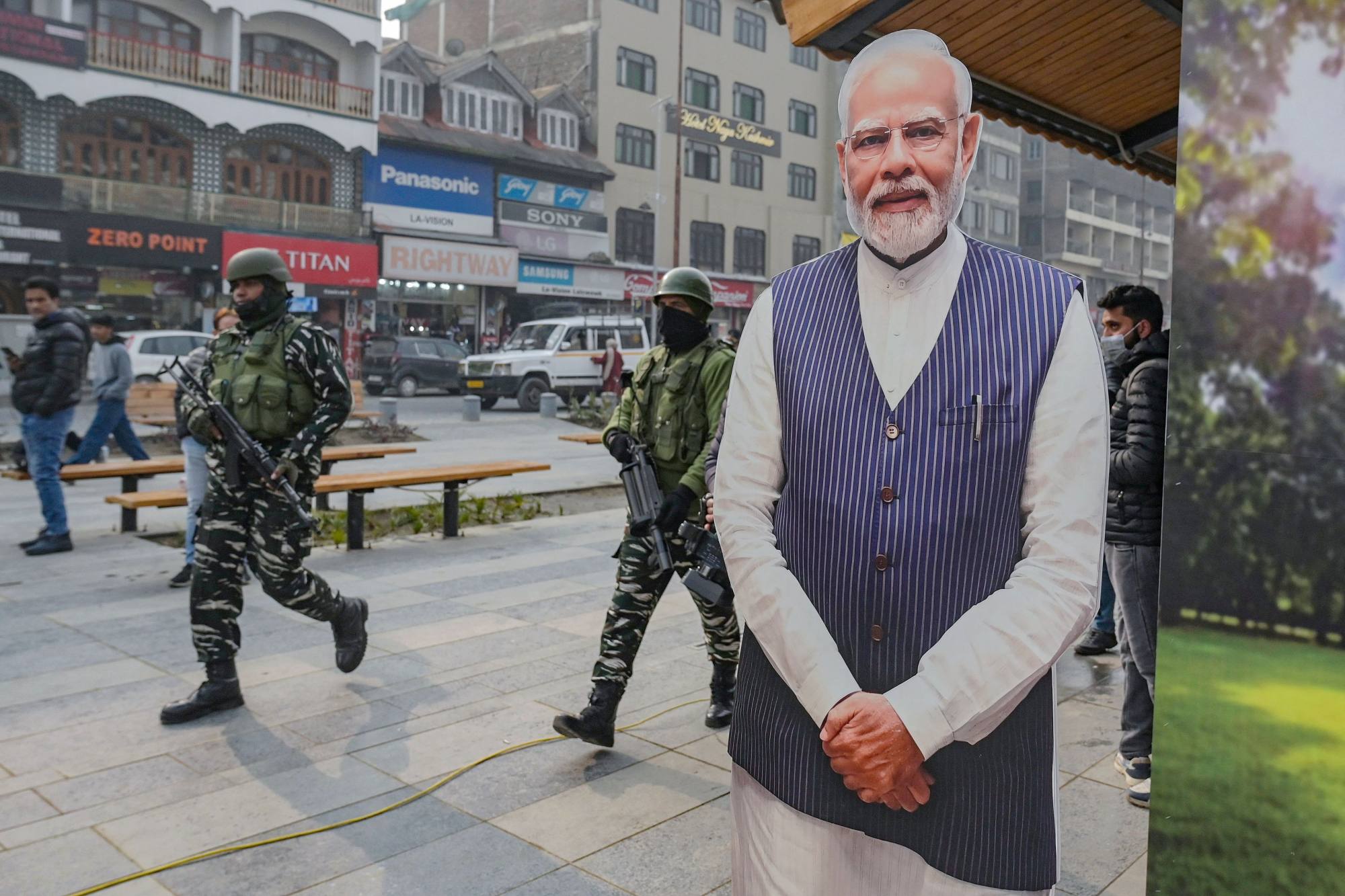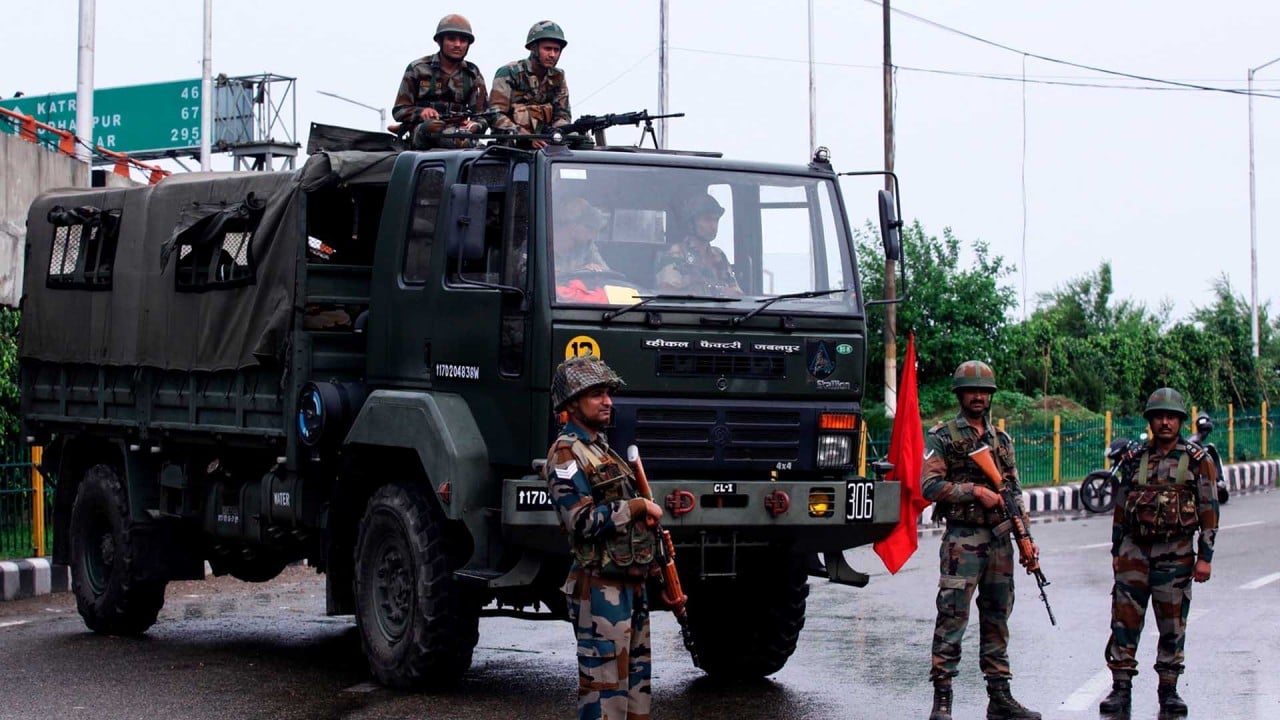India’s Modi welcomes ‘historic’ court ruling ending Kashmir’s special status, polls also ordered for 2024
The 2019 declaration was “a culmination of the process of integration and as such is a valid exercise of power”, the Supreme Court said in its verdict.
The move was accompanied by the imposition of direct rule from New Delhi, mass arrests, a total lockdown and communication blackout that ran for months as India bolstered its armed forces in the region to contain protests.
‘India, not Hindia’: row over India’s languages heats up during Hindi Diwas
‘India, not Hindia’: row over India’s languages heats up during Hindi Diwas
The removal of Article 370 of the constitution, which enshrined the special status of the disputed region, was challenged by Kashmir’s pro-India political parties, the local Bar Association and individual litigants, culminating in Monday’s verdict.
The court upheld removing the region’s autonomy while calling for Jammu & Kashmir to be restored to the same statehood as any other Indian state “at the earliest and as soon as possible”.
The court also ordered state elections to take place by September 30, 2024.
[The ruling was] a beacon of hope, a promise of a brighter future and a testament to our collective resolve to build a stronger, more united India
Security was stepped up across Kashmir ahead of the verdict, with authorities deploying hundreds of soldiers, paramilitary troops, and police in the main city of Srinagar to thwart any protests.
Modi welcomed the judgment as “historic”.
Removing Article 370 has been a key plank of his Bharatiya Janata Party’s platform since its inception, and the Supreme Court decision comes ahead of elections next year.

One of the advocates who argued for the revocation to be ruled unconstitutional – the Supreme Court held hearings on it for 16 days – was sanguine.
“Some battles are fought to be lost,” Kapil Sibal posted on X, even before the verdict was read out, saying the court action was intended to ensure that “history must record the uncomfortable facts for generations to know”.
“History alone is the final arbiter of the moral compass of historic decisions,” he added.
Since the suspension of Article 370 Indian authorities have curbed media freedoms and public protests in a drastic curtailment of civil liberties.
India’s Kashmir tourism push gets a boost with Miss World beauty pageant
India’s Kashmir tourism push gets a boost with Miss World beauty pageant
The changes allowed Indians from outside the region to buy land in it, and seek government jobs and education scholarships, a policy denounced by critics as “settler colonialism”.
Initially New Delhi controlled only foreign affairs, currency, and communication in Kashmir, but over the decades the region’s pro-India leaders collaborated with national authorities to dilute the provision.
Both India and Pakistan claim the Himalayan former kingdom in full, and the nuclear-armed rivals have fought two wars over control of the region.
More than half a million Indian soldiers are deployed in the territory to control the insurgency, which erupted in 1989.
So far in 2023, little more than 120 people have been killed, two-thirds of them militants, a fraction of the four-figure tolls of past years.
India blames Pakistan for backing the militants, a charge Islamabad denies, saying it only supports a Kashmiri struggle for the right to self-determination.
Additional reporting by Reuters


